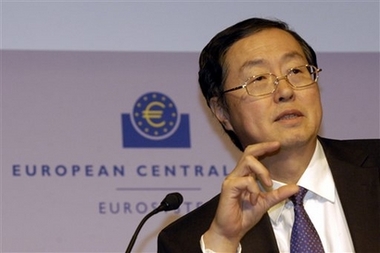PBoC chief urges deal with pension system
(FT.com)Updated: 2006-11-21 06:14
China needs to urgently address the nation's looming pension and health care crises while the government still has the financial resources to tackle the issues, according to Zhou Xiaochuan, the head of the central bank.
|
|
China has large unfunded pension liabilities, resulting from the collapse of a large number of state enterprises which once guaranteed cradle-to-grave support for workers and their families.
The problem is exacerbated by China's one-child policy, introduced in the late 1970s, which will see the percentage of the population that is working peak by around 2010.
Even self-funded pension plans are struggling, as real wages are growing much faster, at about 10 per cent a year, than the anaemic 2-3 per cent annual returns posted by pension funds invested in local capital markets.
The government has begun to allow some pension funds to invest offshore, but returns on those assets are being diluted by the gradual appreciation of China's currency.
Mr Zhou outlined his policy prescriptions in comments to Xinhua, the official news agency, and an Australian newspaper on the sidelines of the G20 finance ministers' meeting in Melbourne on the weekend.
"It is critical to set up an effective incentive system that encourages people to join the pension and medical insurance plan," he said. "The process requires us to be innovative, bold and generous."
Mr Zhou said that as a result of the one-child policy, China's future looked "quite like today's Japan", where the population is already in decline. Although he did not say so, however, Japan is immensely richer than China.
China's pension assets are equal to about five to seven per cent of GDP, compared with 33 per cent in South Korea and 50 per cent in Japan, according to a recent KPMG/Reuters report.
"People with adequate savings should be encouraged to buy pension and medical plans. People with inadequate savings can be supported by loans," Mr Zhou said.
"Social security funds should be invested in the capital market to maintain and increase value."
China has numerous local systems, many of them paying pensions out of current contributions, and a number of experimental plans which have so struggled to produce a model which could be replicated across the country.
The central government established the National Social Security Fund in 2000 as a back-up for future liabilities but is still battling to settle how money should be paid into it.
The absence of a pension system and healthy insurance continues to drive a high savings rate in China, which in turn depresses consumption.
|
||
|
||
|
|

